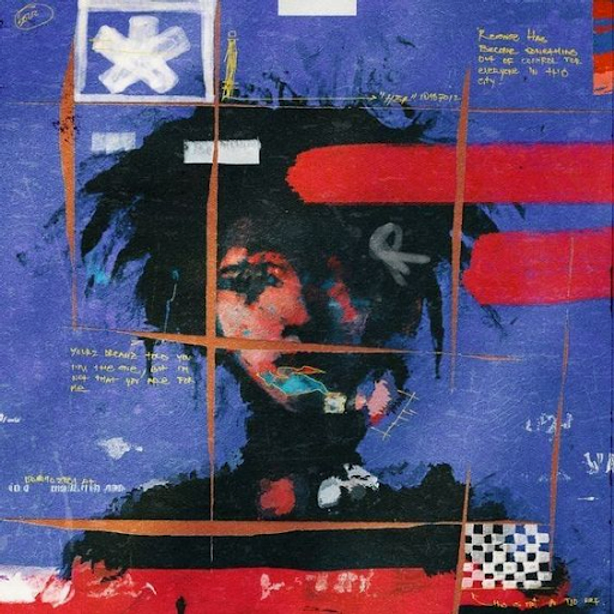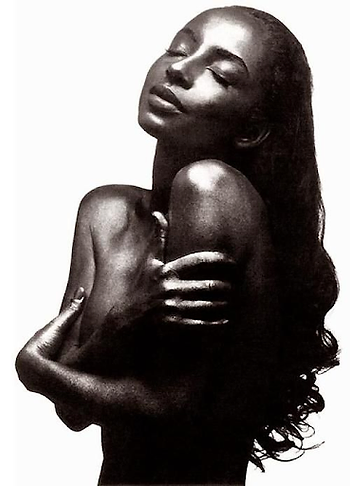“Open the space within you, because when you feel everything, you will let it all go”
- Mimi Zhu.
It is unbelievable, and I remain personally humbled at how much coloniality can affect the everyday, how much it affects my everyday. When I speak of coloniality, I am talking about long-standing patterns of power that emerged and cemented themselves as a result of colonialism. These patterns of power define culture, labour, knowledge production etc. These are things that Decolonial Thoughts has always talked about. However, over the past few months, I have begrudgingly (kicking, screaming, crying and throwing up!) begun to see how these patterns of power can also affect our intersubjective human relations. These months have been some of the most painful moments in my life, giving me a new perspective.
I never want to feel like an expert at anything. These painful moments have reminded me that I am still a student, and I always want to remain open to learning. Without romanticising pain, it is a teacher, and it does have its lessons for us. I never want to run away from pain. I cannot run from a fact of life, it will catch up. I also do not want to shy away from speaking about it. I believe our voices are the most powerful and impactful when we are honest about every facet of life.
Our theme for the year, ‘Decoloniality in the Everyday’ presented itself to us. We found ourselves repeatedly saying “Decoloniality in the Everyday” and leaned into it. As I write this on the 17th of January 2024, the Nasser Hospital in Khan Yunis has been surrounded by the Israeli army and its vehicles. “Tens of thousands of people moving randomly with nowhere to go! It’s the end of the world! I have never seen anything worse than this in my life”. There is an active genocide happening in the Congo with 6 million deaths and about 6 million displaced: “We live in War”. Sudan is also going through its genocide in West Darfur: “They want to destroy all the Indigenous people”.
Moving away from the ongoing imperialism in the Global South, a Forbes Article was titled “Gen-Z Faces Financial Challenges, Stress, Anxiety And An Uncertain Future”. Dr Christine Crawford, an adult, child and adolescent psychiatrist at Boston Medical Centre stated that “young people [now] are consistently being inundated by messages of what’s happening to the world, the environment” negatively impacting their mental health. Now, it is widely accepted that Black, Brown and Indigenous Peoples experience Racial Trauma.
Trauma runs deep in black, brown and indigenous bodies due to white body supremacy. White body supremacy described by Resmaa Menakem is an embodied trauma response resulting from intergenerational transmission of oppressive racism and fears in the body. Coloniality places a burden on us and our bodies, taking a toll on our mental and physical health. It can result in conditions like anxiety, depression, and PTSD. This trauma, deeply ingrained and often overlooked, manifests in various ways, from chronic stress to social withdrawal, identity crisis and anger. Our bodies bear the weight of the violence of coloniality. This collective trauma can numb us, making power structures and dynamics hard to challenge and address. Our trauma goes back centuries (listen to F.U.B.U. by Solange) having severe impacts on our psyche.
I am concerned about the toll living in a world with systems built to tear us down takes on us. How are systems of power affecting our health? Our ways of being and existing? Our ways of loving? How is it affecting our relationships with each other and our communities? Can we be there for each other, when it sometimes feels like we are drowning ourselves? These are the questions that for me shape our theme “Decoloniality in the Everyday”. I want to start fleshing out ways we can heal and not replicate numbness. I want the people marching on the front lines for justice to feel whole.

Incubation.
Incubation – the means of supporting the development of a fragile system

Crafted and envisioned by the talented Solange, ‘Service to Whom’ inspired me. It encapsulates the idea of reemerging into the world of everyday life after an immersive phase of personal incubation and self-revitalization within the confines of one’s sanctuary. In the photograph above Solange is immersed in water, the giver of life, an ode to Yemayá. Yemayá is considered a nurturing Orisha (demi-god), and all life is believed to come from her deep nourishing waters. Her strong, protective energy can be found virtually everywhere, but most especially near the oceans and lakes. I have taken numerous strolls along Lake Geneva, and have found serenity. As the “Mother of All”, Yemayá helps in matters of self-love, emotional wounds, trauma and healing work.
“Your quiet alone times are the most crucial moments in life. When you notice that you find yourself alone more, treasure it, these are moments of deep lessons, and they prepare you for your next chapter”. My mother used to say these words to me when I found myself emotionally wounded, disconnected from the world, and feeling alone. Each time, she was proven correct. She is a very spiritual woman, and to my deep annoyance, she was always excited for me when I found myself in moments of incubation, she would give me a knowing smile and say “You are being reborn”.
I won’t declare my incubation period as concluded; in reality, I sense (or perhaps fear) that it’s merely commencing. The forthcoming months demand my undivided focus, attention, and time. Amidst the pursuit of goals, my body, soul, and spirit also yearn for nourishment. It feels like shedding old skin, making way for the new, and I confess, being in the throes of this transformation is uncomfortable. Somedays all I find myself hoping for is a swift resolution. I share this because, whilst advocating for community has been a recurring theme at Decolonial Thoughts, I’ve somewhat shied away from the equally vital notions of self-love and healing. Though referenced sporadically, these concepts, till now, have yet to be fully explored.
Undergoing metamorphosis means loss. Throughout this difficult period, I have found myself echoing to loved ones that I feel different, older? More centred? Jaded? Metamorphosis means change, out with the old, ushering in the new. I will never go back to who I used to be, and whilst most of the time I feel empowered and emboldened by this, there are pockets during which I am wistful, desperately clinging to the past. All endings must be mourned; I am learning this first-hand and also through the pages of Mimi Zhu’s book ‘Be Not Afraid of Love’. Grief takes time and we should let this slowness challenge the fast-paced neoliberal hyper-individualism. We, I, must move patiently with grief. I must slowly come to accept this new version of myself, I must slowly learn to love him too.
We bear a responsibility towards our emotions and mental well-being. Yet, our society has historically undervalued the significance of feelings, elevating logic while undermining the wisdom inherent in our emotions. This preference for the left brain over the right has led to an imbalance. This imbalance is not only inherent, but also manifests in the systemic structures of capitalism, patriarchy, classism, and racism. Our disconnection from emotions, fueled by societal demands to ignore them, perpetuates a cycle that reinforces systemic issues, further distancing us from the essential aspects of human connection and empathy. In a world that insists we ignore our feelings and emotions, there are times we must prioritise ourselves, taking a step back to incubate. Incubating is decolonial praxis in the everyday.
Hanging on to Love.
I have been listening to Sade a lot recently. An OG lover girl or ‘Soldier of love’ if you prefer, and being British-Nigerian born, I feel deeply connected to her, finding healing in her music. ‘Hang On to Your Love’ has been especially on repeat. Although the song’s main message is about love requiring hard work and perseverance from both sides for it to thrive…I have not been internalising it that way. For me, the song has been a reminder and a beckoning to return to MY love, a reminder of who I am and want to continue being, loving.
‘In heaven’s name, why are you walking away?
Hang on to your love’
The ‘going’ has gotten tough. We all have moments in our lives where it feels like the pain and the bad outweigh the good and it feels like the clouds will never pass. In these moments, all we can do is accept the now, the heaviness, and focus on what we can control. It is also important to know that these moments are not permanent. It is easy to want to focus on attaining power and validation when power structures negatively affect your everyday, work, rest, autonomy, mental health, relationships etc. I think that is why it is so important for me to Incubate in these periods: self-love is the foundation of loving practice, without which “other efforts to love fail”.
As a cis-man, I must be honest, there is a longing for power and control during low moments. Instead of facing my emotions and sitting with them, tending to my inner child, I want to speed the healing process or forget I even need healing in the first place. I throw myself into my career, external validation, forced socialising and parties, friendships, and endless giving of self. I do this to run away. By doing this, I have learned that I abandon myself. I am learning that I must never abandon myself. I thank my friends who constantly, now a daily routine, remind me of this.
“Patriarchy demands of men that they become and remain emotional cripples.” I read this the other day and began laughing because bell hooks, as always, was spot on. My need to run away from myself and my emotions reflects that statement. I am learning that to love, I must access the fullness of my emotions and well-being, which is different from being “rewarded, successful, or powerful because of one’s capacity to assert control”. To truly address my pain, the pain we men mostly face, we need to choose vulnerability, we need to choose love.
The reason I stress my decision to hang on to love is because the other choice is anger. We men have an unhealthy habit of covering our grief with anger. However, all anger does is prevent love and isolate the one who is angry. Anger is simply the “hiding place for fear and pain”. We must embrace our deeper desires and longings of companionship and understanding. Feminist masculinity lets me know that I have value because I am. That I never have to “do” or “perform” to be loved. That I must be kind and learn to forgive myself. A feminist masculinity lets me know that strength is about being responsible and having love for myself, others and the planet.
We are the only ones who can give ourselves the unconditional love we long to receive from others. With self-love, I can reach out to others not from a place of lack, but from a place of fulfilment.

